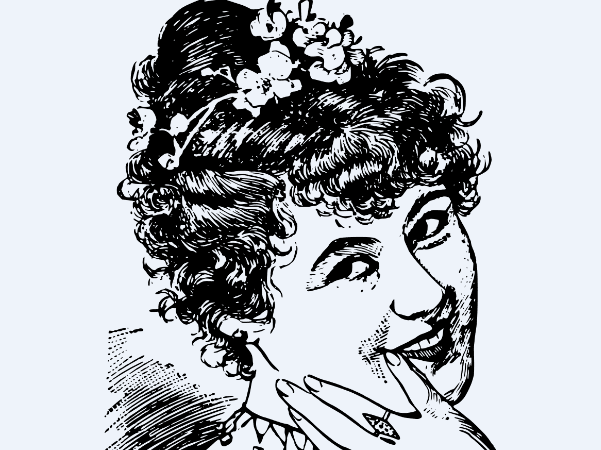Introduction: In this article – to prepare for the summer family reunion season – Mary Harrell-Sesniak presents ideas for family fun by finding our ancestors’ jokes, called “daffydils,” in old newspapers. Mary is a genealogist, author and editor with a strong technology background.
I recently wrote an article about humor contests for your family reunion – in particular, trying to identify the punch lines in old-time humor (see: Idea for Family Reunion Fun: Old Time Guessing Games). If you have any wags in your family, put them to work on writing their own jokes – and especially daffydils.
Never heard of a daffydil?
Around 1911, a joke-writing craze called “daffydil” swept the country. Newspapers did their part in spreading the fun, as we see in this 1912 newspaper article that explains how daffydils work. As you can see from the first quip, a daffydil is a special play on words:
“If Pat put on a new suit of clothes, would microbe?” [i.e., Mike robe]
What is the point of a daffydil? As this article explains:
“The daffydil’s mission in life, whatever his other faults may be, is to lighten the burdens of and drive gloom from an otherwise sad, old world.”
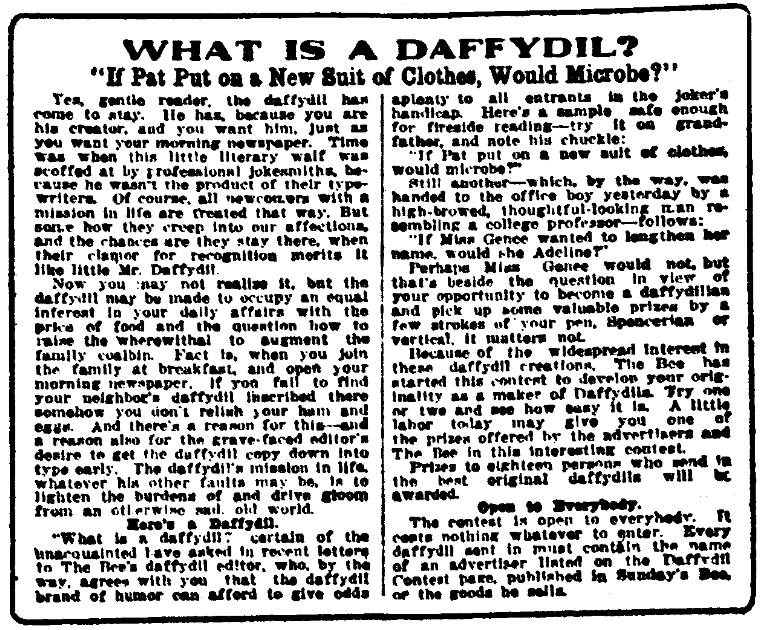
As readers started submitting jokes in droves, many appeared in newspapers. Some of our ancestors were mentioned by name with their address given, so you may wish to look for them in these daffydil articles – for the humor, as well as family history information.
For instance, I found these names, addresses and jokes published in the same issue of the Omaha Daily Bee:
- Welsh of 3123 Pacific Street:
- If a fever rises would a cough drop?
- Miss Emma Jensen of 3331 S St., So. Omaha:
- If the tea leaves will the coffee have grounds for a divorce?
- Elmer Erickson of 2432 Pratt Street:
- If the ship came in late, would she be docked?
- Bige Fitch of the American Theater of Omaha:
- If the wind blew the door open, would the light go out?
- Hulda Lundberg of 1644 N. Main Street in Fremont:
- If the brick road, would the cement walk?
- Williams of 2714 D Street, South Omaha:
- If a girl was going out at night, would the electric light meter half way? [meet her]
Prizes
Some newspapers ran daffydil contests with prizes. The contest providers offered nice incentives for submissions; some were provided by advertisers. In 1911, G. A. Keyser of 4425 Parker Street in Omaha, Nebraska, submitted a daffydil that won a prize from the Farrell Syrup Company. The company wanted their name and/or products to be in the daffydil, and this is what Keyser came up with:
“If Farrell’s Wedding Breakfast Syrup would make a fly bite, would Old Process Molasses make a ginger snap?”
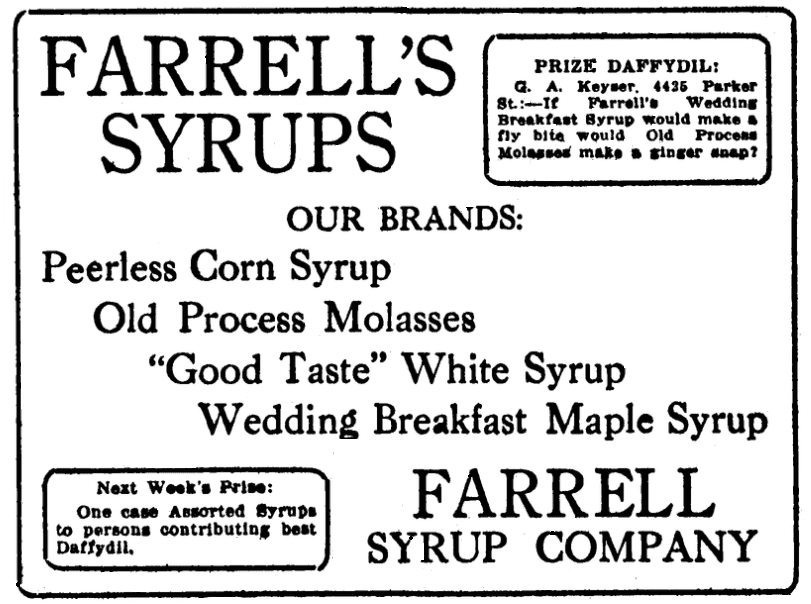
In that same issue, the Omaha Daily Bee ran its own contest offering $1 prizes for the best daffydils, including this one from Carl Henderson of 3005 Chicago Street:
“If a dill pickle got into an insane asylum, would you call it a daffydil?”
I’ll leave it to you to read the other jokes in this article!
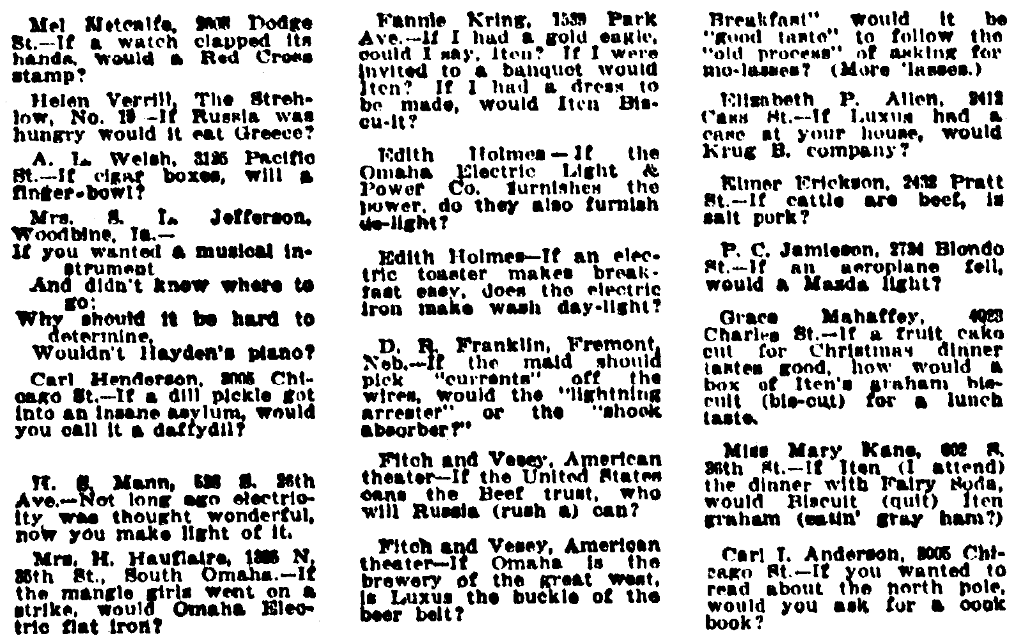
In Kalamazoo, Michigan, you could win seats at the theater. First place was six seats in a lower box for the performance of the Doyle Stock company on 22 November 1911. Now that’s what I call a nice Daffydil prize!
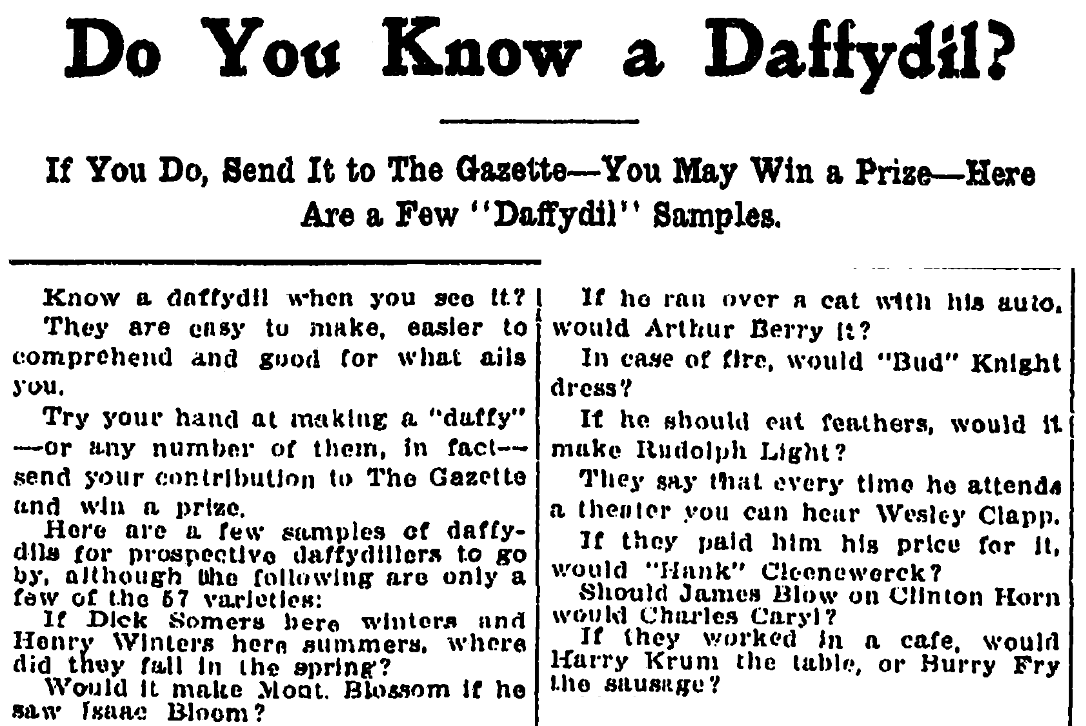
Genealogical Value
Remember: what’s wonderful about many of the contests and submissions is that names and addresses were often included, and these can be found in old newspapers such as GenealogyBank’s Historical Newspaper Archives. As many genealogists will note, this data can establish a residence. Match the address to someone in a local directory, and you might even be able to establish the case of a direct relationship.
Related Articles:

